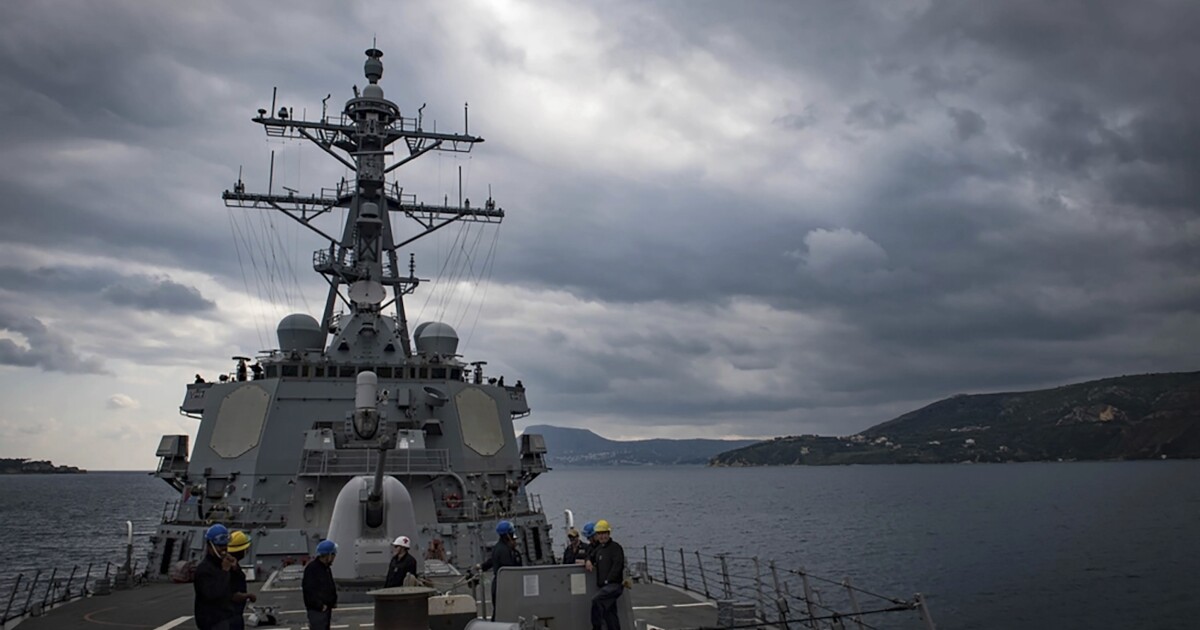

A handful of former United States military leaders have argued in recent days that the Department of Defense has not adequately responded to a series of attacks against U.S. forces carried out by groups with Iran’s backing.
U.S. forces in Iraq and Syria have been attacked dozens of times by Iranian proxies since the middle of October. Houthi rebels in Yemen are the most likely culprit in a series of attacks against commercial vessels in nearby waterways, with the most significant incident occurring just days ago.
POWER OF THE PEN: BIDEN ISSUES TWO MORE VETO THREATS
Retired Vice Adm. John Miller, the former commander of U.S. 5th Fleet, said, “We are not taking this seriously,” according to Politico, adding, “We’re not deterring anybody right now.” He also said the attacks in Iraq and Syria “have gone largely unanswered.”
Three commercial vessels were attacked four times Sunday in the southern Red Sea by forces that originated from Houthi-controlled areas of Yemen. The Unity Explorer, Number 9, and Sophie II were struck by missiles fired from that area, while the USS Carney, which responded to distress calls, shot down multiple drones heading in its direction as it assisted those vessels in need.
National security adviser Jake Sullivan pointed the finger at Iran for the attacks on Monday, telling White House reporters, “We have every reason to believe that these attacks, while they were launched by the Houthis in Yemen, were fully enabled by Iran.”
Sullivan also noted that the U.S. is speaking with other allies about the possibility of a “maritime task force of sorts involving the ships from partner nations alongside the United States in ensuring safe passage — passage of ships in the Red Sea.”
Iranian proxies in Iraq and Syria have launched more than 70 rocket or drone attacks against U.S. forces in both countries that are there to ensure the reconstitution of ISIS does not happen. The attacks, which seemingly have decreased in the last week or so, have injured more than 60 troops, though they have all returned to service.
The U.S. has conducted various airstrikes against facilities used by the proxy forces: Two facilities in Iraq on Nov. 22, a training facility and a safe house on Nov. 12, a weapons storage facility on Nov. 8, and a weapons storage facility and an ammunition storage area in Syria on Oct. 26.
The U.S. responses have largely focused on hitting Iranian facilities, which former Secretary of Defense Leon Panetta said have been “a little bit too selective.”
“I would basically determine where those missiles are coming from — and we have the capability to do that … and then attack those positions immediately in order to make sure that they don’t do it again,” Panetta said at the Reagan National Defense Forum. “I would be much more aggressive about going after those that attack our U.S. forces.”
CLICK HERE TO READ MORE FROM THE WASHINGTON EXAMINER
“I want to go after those who are firing missiles at our troops and make sure they understand that when they fire a missile — they are going to die,” Panetta added.
Former U.S. Central Command spokesman Lt. Joe Buccino said on Fox News that it is his assessment that Iran “does not think that this administration has the will” to inflict harm against them or their proxies.





